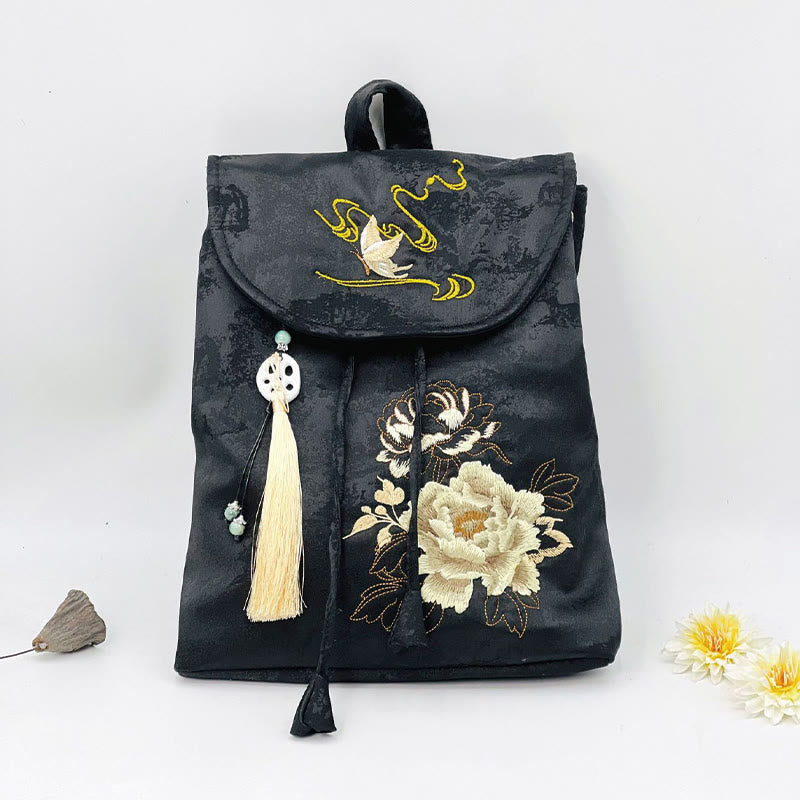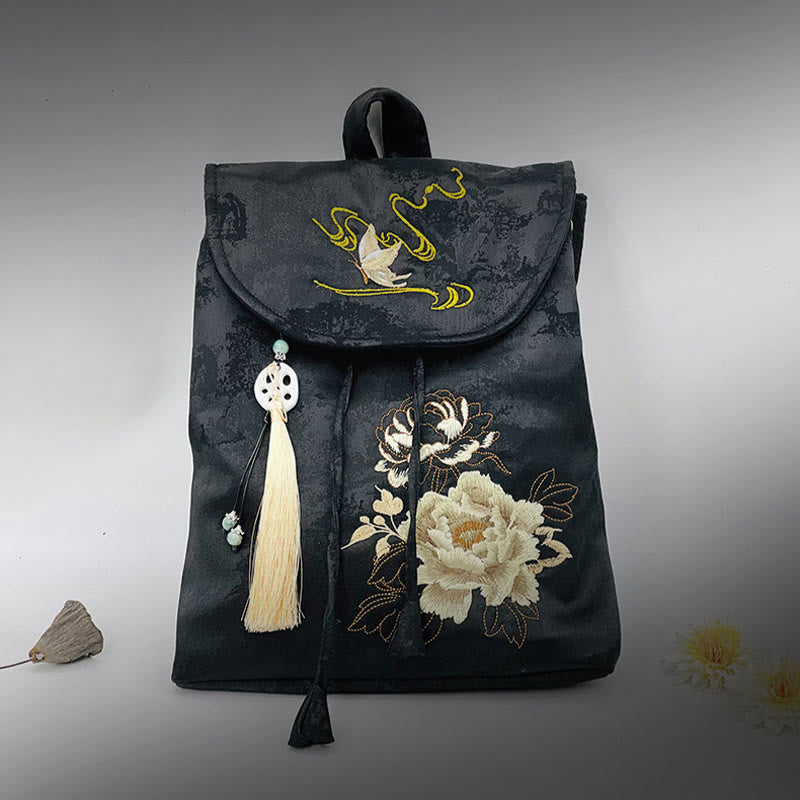Eine Reise der Selbstfindung kann sich anfühlen, als würde man sich durch eine weite, unbekannte Landschaft bewegen. Vielleicht haben Sie schon von einer kraftvollen Methode zur tiefen Heilung gehört, die Ihnen hilft, die Teile Ihrer selbst zu integrieren, die Sie bisher im Dunkeln verborgen gehalten haben. Diese Praxis ist als Schattenarbeit bekannt und beginnt mit einer einfachen, mutigen Tat: dem Stellen der richtigen Fragen. Wenn Sie tiefgreifende Transformation und Selbstakzeptanz anstreben, werden diese Anregungen zur Schattenarbeit Ihr Leitstern sein und Ihnen den Weg zu Ihrem authentischsten Selbst weisen.
Bei der Schattenarbeit geht es nicht darum, deine Fehler zu beseitigen, sondern deine Ganzheit zu akzeptieren. Es ist eine mitfühlende Erforschung deines „Schattenselbst“ – der Teile deiner Persönlichkeit, die du unbewusst unterdrückst oder verleugnest. Indem du diese Aspekte durch Tagebuchschreiben ans Licht bringst, kannst du alte Wunden heilen, dich von einschränkenden Mustern befreien und tieferen inneren Frieden finden. Dieser Leitfaden bietet über 101 wirkungsvolle Anregungen für das Schattenarbeits-Tagebuch, die dir den Einstieg in diese transformative Reise erleichtern.
Was ist Schattenarbeit und warum ist sie so wichtig?
Der Begriff „Schatten“ wurde vom renommierten Psychoanalytiker Carl Jung geprägt und bezeichnet die unbewussten Aspekte unserer Persönlichkeit, mit denen sich unser Bewusstsein nicht identifiziert. Dies können sowohl „negative“ Eigenschaften wie Wut, Eifersucht und Angst sein, als auch überraschenderweise „positive“ Eigenschaften wie Kreativität, Durchsetzungsvermögen und persönliche Stärke, die wir zu unterdrücken gelernt haben. Schattenarbeit ist der Prozess, diese innere Dunkelheit zu erforschen, um ihre Weisheit zu verstehen.
Das Ziel ist Integration, nicht Ausrottung . Wenn wir unseren Schatten ignorieren, bricht seine Energie oft auf unerwartete Weise aus – durch emotionale Ausbrüche, Selbstsabotage oder die Verurteilung anderer. Indem wir uns bewusst mit diesen verborgenen Teilen auseinandersetzen, können wir ihre Wurzeln verstehen, ihren Schmerz heilen und die Lebensenergie zurückgewinnen, die sie in sich tragen. Dies führt zu größerer emotionaler Reife, verbesserten Beziehungen und einer authentischeren Verbindung zu uns selbst.

So beginnen Sie Ihre Schattenarbeitsreise: Ein sanfter Start
Der Beginn der Schattenarbeit kann einschüchternd wirken, muss es aber nicht. Der Schlüssel liegt darin, ein Gefühl der Sicherheit zu schaffen und den Prozess mit Neugier und Selbstmitgefühl anzugehen. Sie sind der sanfte Begleiter Ihrer eigenen inneren Erkundung.
1. Schaffen Sie einen sicheren und heiligen Raum
Ihre Umgebung ist wichtig. Suchen Sie sich einen ruhigen, gemütlichen Ort, an dem Sie ungestört sind. Das kann eine gemütliche Ecke in Ihrem Zimmer sein, ein friedliches Plätzchen in Ihrem Garten oder ein anderer Ort, an dem Sie sich sicher und entspannt fühlen. Zünden Sie eine Kerze an, spielen Sie beruhigende Musik oder verteilen Sie ätherische Öle, um Ihrem Geist und Körper zu signalisieren, dass es Zeit für Besinnung ist. Ziel ist es, einen Rückzugsort für Ihre innere Arbeit zu schaffen.

2. Sammeln Sie Ihre Werkzeuge
Alles, was Sie wirklich brauchen, ist ein Tagebuch und ein Stift. Wählen Sie ein Notizbuch, das Ihnen etwas Besonderes ist – eines, auf dessen Öffnung Sie sich freuen. Um Ihre Tagebuchutensilien, Kristalle und andere Ritualgegenstände zusammen und griffbereit für Ihre Praxis aufzubewahren, kann eine spezielle Tasche ein wunderbares Organisationstool sein.
Geräumiger Rucksack mit schwarzer Pfingstrose-Stickerei für Meditationszubehör
$47.90 $68.90
Organisieren Sie Ihr Schattenarbeitsjournal, Ihre Kristalle und Werkzeuge mit diesem handgefertigten Rucksack für eine achtsame Selbsterkundung.
Produkt entdecken3. Setzen Sie sich ein Ziel und seien Sie sanft
Bevor du mit dem Schreiben beginnst, atme ein paar Mal tief durch. Setze dir ein einfaches Ziel, wie zum Beispiel: „Ich möchte meine innere Welt mit Mitgefühl erforschen“ oder „Ich bin offen für alles, was mir Heilung bringt.“ Denk daran: Bei der Schattenarbeit gibt es keine richtigen oder falschen Antworten. Das Ziel ist ehrliche Erforschung, nicht Perfektion. Wenn dir eine Aufforderung zu intensiv erscheint, erlaube dir, sie zu überspringen und später wiederzukommen. Deine Sicherheit und dein Wohlbefinden stehen an erster Stelle.

Den Prozess steuern: Tipps für ein effektives Shadow Work Journaling
Wenn Sie sich mit den Fragen der Schattenarbeit beschäftigen, ist es hilfreich, einen Rahmen für Ihre Praxis zu haben. Es geht nicht nur darum, Fragen zu beantworten, sondern einen Dialog mit Ihrem inneren Selbst zu eröffnen. Es kann ein emotional intensiver Prozess sein, denken Sie also daran, sich anschließend um sich selbst zu kümmern. Gehen Sie spazieren, nehmen Sie ein warmes Bad oder tun Sie etwas, das Ihnen Freude und Trost spendet.
- Schreiben Sie frei: Zensieren Sie sich nicht selbst. Lassen Sie die Worte fließen, ohne zu urteilen.
- Seien Sie ehrlich: Je ehrlicher Sie sind, desto tiefgreifender wird die Heilung sein.
- Akzeptieren Sie Unbehagen: Wachstum findet oft knapp außerhalb Ihrer Komfortzone statt. Atmen Sie durch alle herausfordernden Gefühle hindurch.
- Suchen Sie nach Mustern: Achten Sie auf wiederkehrende Themen in Ihrem Schreiben, da diese oft auf grundlegende Wunden oder Überzeugungen hinweisen.
- Üben Sie Dankbarkeit: Danken Sie Ihrem Schatten für die Lektionen, die er Ihnen offenbart. Er ist ein Teil von Ihnen, der nach Liebe und Aufmerksamkeit sucht.
Um Ihnen zu helfen, diesen Prozess besser zu visualisieren und zu verstehen, bietet das folgende Video einige hervorragende, gezielte Fragen, die Ihre Reise zur Selbstfindung ankurbeln können.
[Sammlungs-Schieberegler]
101+ Schattenarbeits-Anregungen für tiefe innere Heilung
Hier finden Sie eine umfassende Liste kategorisierter Schattenarbeits-Tagebuch-Anregungen, die Ihnen bei Ihrer Erkundung helfen sollen. Wählen Sie die Anregungen aus, die Ihnen am meisten zusagen, oder arbeiten Sie sie nacheinander ab. Es gibt keine Eile; dies ist Ihre persönliche Reise.
Anregungen zum Aufdecken von Kindheitswunden
- Welche Botschaften habe ich als Kind über den Ausdruck von Emotionen erhalten?
- Beschreiben Sie eine Situation in meiner Kindheit, in der ich mich nicht gesehen oder nicht gehört fühlte.
- Welche Familiengeheimnisse kannte ich, auch wenn sie nicht ausgesprochen wurden?
- Welche Rolle habe ich in meiner Familie gespielt (der Friedensstifter, der Rebell, das unsichtbare Kind)? Wie wirkt sich das noch immer auf mich aus?
- Was ist meine früheste Erinnerung an Schamgefühle?
- Worüber haben meine Eltern gestritten? Was habe ich von ihnen über die Liebe gelernt?
- Welchen Traum oder welche Leidenschaft habe ich aufgegeben, um jemand anderem zu gefallen?
- Zu wem habe ich als Kind aufgeschaut und welche Eigenschaften hatten sie, die mir meiner Meinung nach fehlten?
- Nach welchem Lob habe ich mich als Kind am meisten gesehnt?
- Wovor hatte ich als Kind am meisten Angst? Gibt es diese Angst heute noch?
- Inwiefern fühlte ich mich von meinen Betreuern missverstanden?
- Welche Lügen wurden mir als Kind direkt oder durch Unterlassung erzählt?
- Wie habe ich gelernt, meine Bedürfnisse zu erfüllen?
- Beschreiben Sie eine Situation, in der ich mich ungerecht bestraft oder beschuldigt fühlte.
- Welchen Teil meiner Kindheit würde ich am liebsten heilen?
Anregungen zum Erforschen von Auslösern und emotionalen Reaktionen
- Welche Eigenschaften anderer Menschen irritieren mich am meisten? Wo könnte ich eine Schattenversion derselben Eigenschaft besitzen?
- Beschreiben Sie eine Situation, in der ich kürzlich überreagiert habe. Was war das tiefere Gefühl hinter meiner Wut oder Frustration?
- Worüber urteile ich bei anderen am meisten?
- Wenn mich jemand kritisiert, was ist meine unmittelbare innere Reaktion?
- Welche Situationen oder Arten von Menschen geben mir ständig das Gefühl, in die Defensive zu gehen?
- Vor welchem Gefühl habe ich am meisten Angst? Warum?
- Denken Sie an das letzte Mal, als ich intensive Eifersucht empfand. Worum ging es wirklich? Welches unerfüllte Bedürfnis offenbarte sich?
- Welcher Klatsch zieht mich an? Was sagt er über meine eigenen Unsicherheiten aus?
- Wann fühle ich mich am machtlosesten?
- Welcher Kommentar von jemand anderem ist mir jahrelang im Gedächtnis geblieben? Warum hat er so viel Kraft?
- Wen beneide ich insgeheim und worum?
- Was löst meine Tendenz aus, es allen recht machen zu wollen?
- Beschreiben Sie eine Situation, in der ich „Ja“ gesagt habe, obwohl ich unbedingt „Nein“ sagen wollte.
- Wenn ich mich verletzt fühle, neige ich dazu, mich zurückzuziehen oder anzugreifen?
- Welches Verhalten anderer fühlt sich wie ein persönlicher Angriff an, auch wenn es keiner ist?
Anregungen zur Untersuchung einschränkender Überzeugungen
- Welche negative Überzeugung habe ich über mich selbst, von der ich vermute, dass sie nicht stimmt?
- Vervollständigen Sie den Satz: „Ich bin nicht würdig …“ und untersuchen Sie, woher das kommt.
- Was kann ich meiner Überzeugung nach nicht tun, haben oder sein?
- Welche „Sollte“ und „Sollte nicht“ bestimmen mein Leben?
- Welche meiner Ansichten über Geld könnten mich zurückhalten?
- Welche Geschichten erzähle ich mir darüber, warum ich immer noch Single bin, diesen Job habe usw.?
- Wenn ich bei etwas Wichtigem versagen würde, was würde das über mich aussagen?
- Glaube ich, dass ich mir Liebe und Ruhe verdienen muss?
- Was ist meine größte Angst, wenn ich wirklich erfolgreich sein will?
- Welche Überzeugungen meiner Familie habe ich übernommen, ohne sie zu hinterfragen?
- Glaube ich, dass die Welt im Allgemeinen ein sicherer oder ein gefährlicher Ort ist? Wie beeinflusst dies meine Entscheidungen?
- Welcher ist der selbstzerstörerischste Gedanke, den ich regelmäßig habe?
- Wenn ich wüsste, dass ich nicht scheitern kann, was würde ich tun?
- Welche Ausreden bringe ich am häufigsten vor?
- Wovor habe ich Angst, dass die Leute über mich herausfinden?
Anregungen zur Integration von Unsicherheiten und Ängsten
- Für welchen Teil meines Körpers schäme ich mich am meisten? Schreiben Sie ihm einen Brief aus Liebe.
- Was macht mich in meiner Persönlichkeit am unsichersten?
- Was ist meine größte Angst vor der Zukunft?
- Beschreiben Sie eine Situation, in der ich mich wie ein Hochstapler gefühlt habe.
- Was kann ich tun, um meine vermeintlichen Fehler vor anderen zu verbergen?
- Wovor habe ich Angst zu verlieren?
- Wie würde sich mein Leben verändern, wenn ich meine größte Unsicherheit voll und ganz akzeptieren würde?
- Welches Kompliment kann ich am schwersten annehmen?
- Welchen Vergleich zwischen mir und anderen stelle ich am häufigsten an?
- Was ist der „schlimmste“ Teil von mir? Wovor versucht er mich zu schützen?
- Wovor habe ich Angst, abgelehnt zu werden?
- Wann fühle ich mich am kleinsten?
- Schreiben Sie über einen Fehler, den ich gemacht habe und den ich mir nur schwer verzeihen kann.
- Wie klingt mein innerer Kritiker? Wessen Stimme ist es wirklich?
- Wenn ich keine Angst hätte, welches Gespräch würde ich führen?
Anregungen zur Entwicklung von Selbstmitgefühl und Liebe
- Was kann ich heute Gutes für mich tun?
- Einen Vergebungsbrief an mich selbst schreiben.
- Listen Sie 10 Dinge auf, die ich an mir mag, ob groß oder klein.
- Wie kann ich jetzt dem verletzten Kind in mir eine Mutter/ein Vater sein?
- Was braucht mein Körper heute von mir?
- Welche Grenzen muss ich setzen, um meine Energie zu schützen?
- Beschreiben Sie eine Situation, in der ich stolz auf mich war.
- Wie sieht „bedingungslose Selbstliebe“ für mich in der Praxis aus? * Welches Bedürfnis habe ich ignoriert? * Wie kann ich heute einen kleinen Erfolg feiern? * Was würde mein höheres Selbst in diesem Moment zu mir sagen? * Schreiben Sie drei Dinge auf, für die ich auf meiner bisherigen Reise dankbar bin. * Wie würde es sich anfühlen, mir selbst vollkommen zu vertrauen? * Wie kann ich heute freundlicher mit mir selbst sprechen? * Bei welcher Aktivität fühle ich mich wirklich lebendig und fröhlich?
Aufforderungen zur Rückgewinnung Ihrer Kraft und Authentizität
- In welchen Bereichen meines Lebens gebe ich meine Macht ab? * Wann fühle ich mich am meisten wie mein wahres Ich? * Welche Wahrheit muss ich aussprechen, auch wenn meine Stimme zittert? * Wenn ich keine Angst davor hätte, „zu viel“ zu sein, was würde ich tun oder sagen? * Welchen Wunsch habe ich unterdrückt? * Auf welche Weise dimme ich mein eigenes Licht, um es anderen bequem zu machen? * Wie fühlt sich meine Intuition in meinem Körper an? * Beschreiben Sie eine Situation, in der ich für mich oder meine Überzeugungen eingetreten bin. * Was bedeutet „Freiheit“ für mich? * Welchen Schritt kann ich heute unternehmen, um authentischer zu leben? * Welche Leidenschaften habe ich auf Eis gelegt? * Wer in meinem Leben sieht und unterstützt mein wahres Ich? * Welcher Teil meiner „Verrücktheit“ ist eigentlich meine Superkraft? * Auf welche Grenze bin ich stolz, sie gesetzt zu haben? * Wenn ich meinen idealen Tag gestalten könnte, wie würde er aussehen?
Tools zur Verbesserung Ihrer Schattenarbeitspraxis
Wenn Sie sich dieser Praxis widmen, kann die Verwendung von Hilfsmitteln, die Ihre Heilung unterstützen, die Erfahrung bewusster und beruhigender machen. Schaffen Sie ein Ritual rund um Ihr Tagebuch – vielleicht durch das Spielen von resonanten Klängen aus einer Klangschale oder das Tragen Ihres Tagebuchs in einer speziellen Tasche – kann dies Ihrem Unterbewusstsein signalisieren, dass dies eine heilige Zeit der Heilung ist.
Unterstützen Sie Ihre Reise mit diesen Tools
$24.90
$35.90
Tragen Sie Ihr Tagebuch und Ihre Heilaccessoires mit Bedacht in dieser botanischen Tragetasche – ein stilvoller Begleiter für die tägliche Schattenarbeit. Mehr erfahren ➔
$2,790.00
Verbessern Sie Ihre Tagebuchpraxis und Ihre Rituale zur emotionalen Heilung mit der kraftvollen Resonanz dieses Kristallklangschalen-Sets. Mehr erfahren ➔
Ihre Reise zur Ganzheit
Schattenarbeit ist eine mutige, lebenslange Praxis, bei der du immer wieder zu dir selbst zurückkehrst. Sie zeugt von deiner Stärke und deinem Wunsch, ein vollkommen integriertes, authentisches Leben zu führen. Diese Schattenarbeits-Anregungen sind einfach Türen; du bist derjenige, der mutig hindurchgeht. Sei geduldig, sei freundlich und vertraue darauf, dass jede Frage, die du deinem Schatten stellst, ein Schritt in Richtung tiefer Heilung und Ganzheit ist. Dein hellstes Licht findest du, wenn du den Mut hast, alle Teile deiner selbst anzunehmen.
Häufig gestellte Fragen zu Shadow Work Prompts
Gute Anregungen für die Schattenarbeit sind offene Fragen, die zu tiefer Selbstreflexion anregen. Sie konzentrieren sich oft auf Bereiche wie Kindheitserlebnisse, emotionale Auslöser, Unsicherheiten, Ängste und einschränkende Überzeugungen. Gute Anregungen fordern Sie dazu auf, Ihre Urteile an anderen zu hinterfragen, Ihre emotionalen Reaktionen zu erforschen und die Geschichten, die Sie sich selbst erzählen, zu hinterfragen. So können Sie die verborgenen Teile Ihrer Persönlichkeit integrieren.
Für Anfänger: Schaffen Sie sich zunächst einen sicheren, privaten Raum, in dem Sie sich wohlfühlen und ungestört sind. Führen Sie ein Tagebuch und beginnen Sie mit sanfteren Aufforderungen. Nehmen Sie sich vor, mitfühlend und vorurteilsfrei mit sich selbst umzugehen. Es ist wichtig, keine Antworten zu erzwingen und Pausen einzulegen, wenn die Emotionen überhandnehmen. Konzentrieren Sie sich nach jeder Sitzung auf sich selbst, um die aufkommenden Emotionen zu verarbeiten.
Der größte Nachteil bzw. die größte Herausforderung der Schattenarbeit ist ihre emotionale Intensität. Sie beinhaltet die Auseinandersetzung mit schmerzhaften Erinnerungen, unangenehmen Wahrheiten und schwierigen Emotionen wie Trauer, Wut und Scham. Ohne angemessene Selbstfürsorge und Erdungstechniken kann sie überwältigend sein. Es ist wichtig, die Praxis mit Geduld und Selbstmitgefühl anzugehen. Bei schweren Traumata ist die Zusammenarbeit mit einem qualifizierten Therapeuten dringend zu empfehlen.
Diese Frage ist selbst ein hervorragendes Beispiel für eine wirkungsvolle Schattenarbeit. Sie fordert Sie direkt auf, ein Gefühl zu identifizieren, das Sie unterdrücken. Um sie zu beantworten, müssen Sie Emotionen wie Wut, Traurigkeit, Eifersucht oder auch Freude betrachten und dann die Ursache für die Vermeidung erforschen. Vielleicht wurde Ihnen beigebracht, dass es „schlecht“ sei, wütend zu sein, oder Sie befürchten, dass das Gefühl Ihrer Traurigkeit zu überwältigend sein könnte. Diese einzelne Aufforderung kann eine wichtige Tür zur Selbsterkenntnis öffnen.







